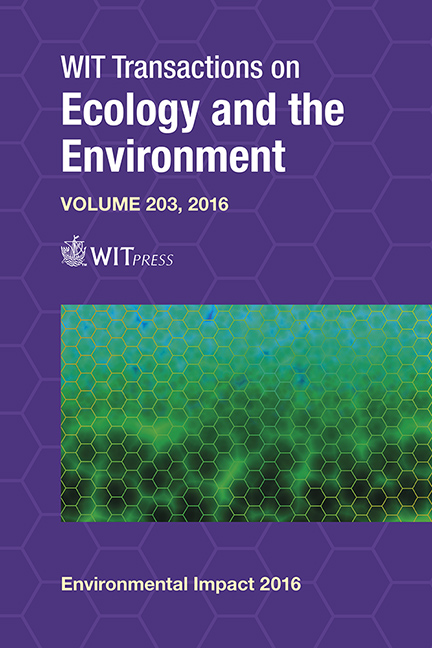Ancestral Heritage Of Flood Plain Residence And Solid Waste Disposal Pattern In Flood Events In Kogi State, Nigeria
Price
Free (open access)
Transaction
Volume
203
Pages
12
Page Range
37 - 48
Published
2016
Size
1,735 kb
Paper DOI
10.2495/EID160041
Copyright
WIT Press
Author(s)
O. M. Aderoju, A. Guerner Dias, B. Anwasia
Abstract
The 2012 flooding incidents in Nigeria claimed lives and properties, rendered many homeless and also interrupted the development of the environment and socio-economic activities. High poverty levels, unethical waste disposal methods and strong affinity to flood plains for economic survival by communities in claims to ancestral credence have contributed immensely to flood disaster in Kogi State, Nigeria. In a way to attenuate the damage extent and causalities recorded from flooding in the past, this study aims at sensitizing the citizens on environmental ethics as a risk to flooding and generating a flood vulnerability map to identify communities at flood plain in Kogi State. The methodology adopted the Aderoju Conceptual Model (ACM) of environmental ethics and discipline on solid waste management. Also, Geographic Information Systems (GIS) was employed to identify and map out the communities in flood plains. It was deduced that over 73 communities from 7 local government areas (LGA) namely Lokoja, Kotokarfi, Bassa, Ajaokuta, Ofu, Idah and Ibaji in Kogi State are susceptible to flooding. From vulnerability map, safe zones closer to their source of livelihood for communities were identified. Government policies and intervention towards poverty alleviation as well as environmental awareness for the inhabitants in Kogi State will educate and build their conscious mind towards a friendly and sustainable solid waste disposal ethics regarding flood risk mitigation in the society.
Keywords
floodplains, flooding, municipal solid waste (MSW), GIS, vulnerability





